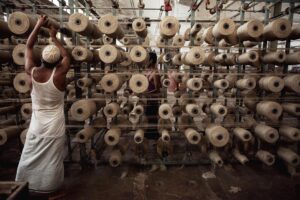Creating a Culture of Responsibility: Tips for Brands to Promote Anti-Slavery Practices Among Suppliers
As sustainability and ethical practices become more important for businesses, brands need to ensure that their suppliers are committed to these values as well. Modern slavery is a significant issue that affects many industries, and it’s crucial for brands to take a proactive approach in encouraging their suppliers to adopt anti-slavery practices.
Whether you’re new to addressing modern slavery or a seasoned advocate, this blog is designed to provide valuable insights and actionable steps for all levels of experience. From basic steps to get started, to recommendations for implementing your current strategies, we’ve got you covered.
To mitigate the risk of modern slavery from their supply chains, brands can take the following steps:
Firstly, raise awareness about modern slavery. Many suppliers may not be aware of the issue or the risks associated with it, so it’s important for brands to educate them. Brands can provide information about the forms of modern slavery, the risks associated with it, and the impact it has on individuals and communities. By raising awareness, suppliers will be more likely to take proactive measures to prevent modern slavery in their operations.
Secondly, promote ethical supply chain practices. Brands can encourage their suppliers to adopt ethical practices that promote transparency, responsibility, and accountability. Ethical supply chains help to ensure that products are produced and delivered in a way that respects human rights and minimises the risk of modern slavery. Brands can work with their suppliers to establish codes of conduct, policies, and procedures that promote ethical practices and reduce the risk of modern slavery. While this may seem daunting if you’re just getting started, there are various resources available to help provide direction in these areas.
Take for example The Responsible Sourcing Tool. This provides guidance and resources to help companies identify, prevent, and address human trafficking and forced labour in supply chains by providing templates for supplier codes of conduct, risk assessment tools, and training materials.
The Mekong Club also provides a range of comprehensive toolkits and resources which include practical guidance, checklists, templates and eLearning videos. The eLearning videos are complemented with quizzes to test suppliers’ knowledge in their own language. These resources are designed to assist brands in establishing ethical supply chain practices and reducing the risk of modern slavery.
Thirdly, provide anti-slavery encouragement and support. Brands can provide training on identifying and preventing modern slavery, share best practices, and offer incentives for compliance. They can also establish an effective grievance mechanism to allow workers to raise concerns about working conditions, including the risk of modern slavery, and seek redress for violations of their rights. It’s crucial for brands to work with their suppliers to establish an accessible, impartial, confidential, and responsible mechanism that is communicated effectively to workers in local languages and through multiple channels.
In addition to these steps, increasing supply chain transparency is crucial in preventing modern slavery in supply chains. Brands can work with their suppliers to provide access to information about suppliers’ operations, processes, and labour practices. This can include providing supplier audits, assessments, and other forms of monitoring to ensure compliance with ethical standards. Transparency helps to build trust between brands and suppliers, which is essential in creating a culture of responsible and ethical business practices.

An example of innovative technology that can increase supply chain transparency is the diginexApprise app. This multilingual app collects standardised, actionable data related to working conditions directly from workers in global supply chains. Through tailored question sets, companies can deploy surveys directly to workers in their supply chain on a variety of topics such as responsible recruitment, gender equality, and living and working conditions. This innovative approach has been recognised as an effective toolkit for companies looking to enable and scale proactive worker-led due diligence.
Finally, brands can collaborate with suppliers, industry associations, and other stakeholders to develop solutions for modern slavery. This can include sharing information about best practices, working together to address systemic issues, and promoting innovation in anti-slavery practices. The Mekong Club facilitates industry working groups that bring together key stakeholders to collaborate on specific sectors or issues related to modern slavery. These groups provide a platform for companies, NGOs, and experts to share knowledge, experiences, and best practices in a collaborative setting. Through these working groups, participants can identify and address common challenges, develop new solutions, and drive industry-wide change. By working together, brands and suppliers can help to eliminate modern slavery from their supply chains and create a more sustainable and ethical business environment.
Eliminating modern slavery from supply chains requires a multifaceted approach that involves raising modern slavery awareness, promoting ethical practices, providing anti-slavery encouragement and support, increasing supply chain transparency, and collaborating on solutions. By taking these steps, brands can create a more responsible and sustainable business environment and help to end modern slavery.
Author: Nolan Clack
FAQ
-
1. Are there any legal consequences for brands that do not ensure their suppliers are committed to anti-slavery practices?
-
2. How can brands ensure that their suppliers are complying with anti-slavery policies and codes of conduct?
-
3. What are some potential challenges that brands may face in promoting anti-slavery practices among their suppliers?
-
4. How can brands effectively communicate their anti-slavery policies and expectations to their suppliers, especially if they are based in different countries with different cultures and languages?
-
5. In addition to promoting ethical practices, what other steps can brands take to mitigate the risk of modern slavery in their supply chains?

